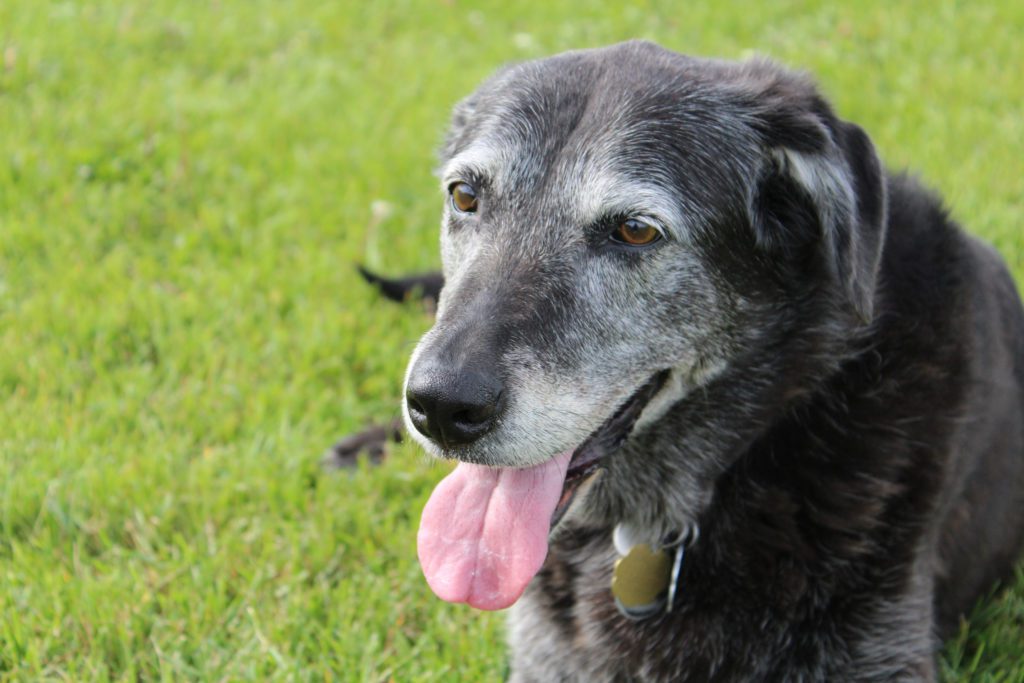
Maybe she’s getting a bit slower. Maybe she’s lost a little pep from her step or has more difficulty climbing up on the sofa for a cuddle with you. Growing older is a fact of life – but it hits pet parents especially hard! We want our beloved buddies around for as long as possible. And the good news is that with advances in veterinary care, pets are living longer. How can we make sure those longer lives are also fuller and happier? Check out some great tips for caring for senior dogs.
When is Your Dog Old?
While it depends on your dog’s breed and other factors (such as weight), usually small dogs live to about 15-20 years, while larger dogs live to about 12-15. So, your small dog is considered “old” (or geriatric) at about 8 or 9. Your big dog’s considered a senior when he hits 6.
Just like humans, senior dogs face age-related illnesses and challenges, from the increased risk of heart disease and cancer to stiff joints and weakness. To help your dog live comfortably and maintain quality of life:
Pay Attention to Nutrition
As dogs age, they usually burn fewer calories and their metabolism slows. To compensate, they should eat fewer calories. Obesity can be a big problem for dogs, contributing to accelerated aging, joint problems, and the increased risk of diabetes, heart disease, and certain cancers.
It is best to opt for a special “senior” dog food (there is a variety now available) because they are lower-calorie and have specific nutrient contents that your dog needs (such as lower sodium and more fiber). If you have younger dogs and need a multi-age food, just give your older dog less.
Supplement his food with healthy treats. Believe it or not, most dogs enjoy apple slices and carrots. Sweet potatoes, canned pumpkin, cantaloupe, green beans, blueberries, and Brussels sprouts are all good options. (And it’s easier to get your dog to eat his veggies than your kids!)
Keep your dog hydrated. As your dog ages, he’ll need more water, so keep the bowl full. If you go on hikes, walks, and other adventures, bring a collapsible bowl and a bottle of water.
Speaking of Exercise!
Exercise is one of the most powerful habits we can adopt. And it is just as beneficial for dogs at every stage of life. Maybe your senior pet doesn’t bound up mountain trails or run your 5K with you anymore, but he still needs ample exercise to stave off bone and muscle problems, keep his heart and lungs strong, maintain a healthy weight, and stay mentally sharp.
Simple walks (at his pace) are wonderful forms of exercise. About 20 minutes a day can help your senior dog feel like a pup again. You can also try gentle games of fetch, Frisbee, hide and seek with treats, or swimming. You could even give doga a try. Yes, that is yoga for dogs. And yes, it is a real thing!
Brush the Chewers
Brushing your dog’s teeth is vital in maintaining health. (At least you don’t have to floss them!) Plus, what fun is gnawing on chew toys if you don’t have any teeth?
Without proper dental care, tartar can build up, causing gingivitis. In some cases, this causes bacteria to enter the bloodstream, and that’s not good news for your dog’s organs. Tooth decay and loss are also possibilities. Prevent these problems by brushing the old chompers regularly and get a yearly professional cleaning from your vet.
And Speaking of Your Vet!
Get regular checkups for your pooch. A trip to the vet every six months can help catch health issues while they can be more easily (and inexpensively) treated. Also, while you’re there, ask your vet for tips on nutrition, exercise, and keeping your pet in top shape.
Show Him the Love
One of the most important (and fun) ways to keep your dog young at heart is to love him. If he can’t hop up on the couch anymore, get down on the floor. Pet him, speak to him soothingly, and provide comfortable bedding and toys.
You may notice that your senior dog requires more attention. This is normal. Include him in fun activities when you can (e.g. a car ride or a simple round of fetch), and remember to heap on the praise.
Caring for a senior dog can be challenging, but the rewards – and the love – are worth it. With these easy tips, you can make your pet’s golden years his best yet.


